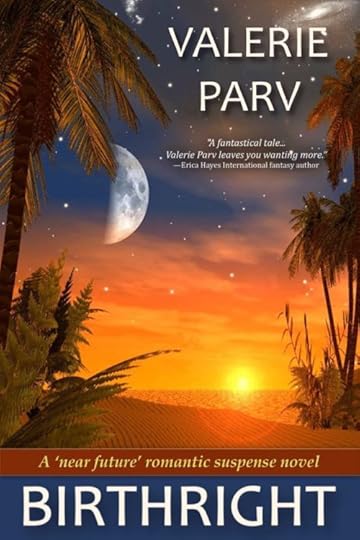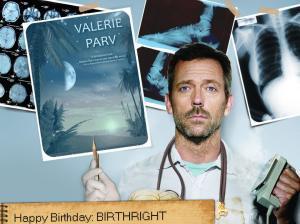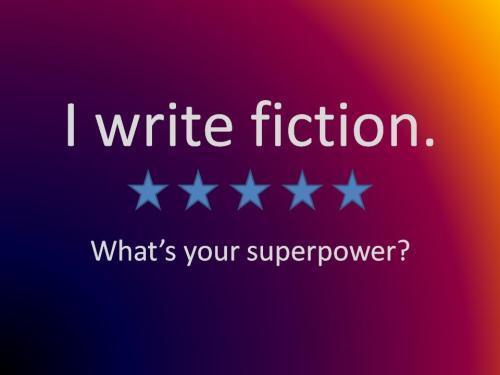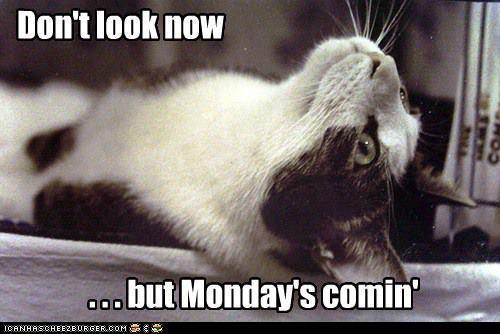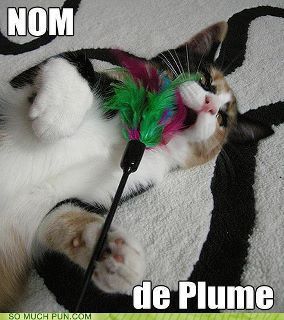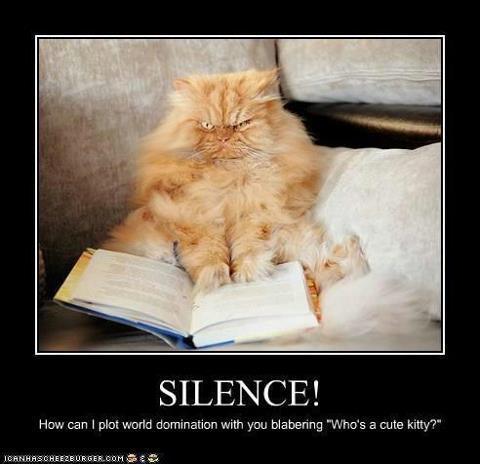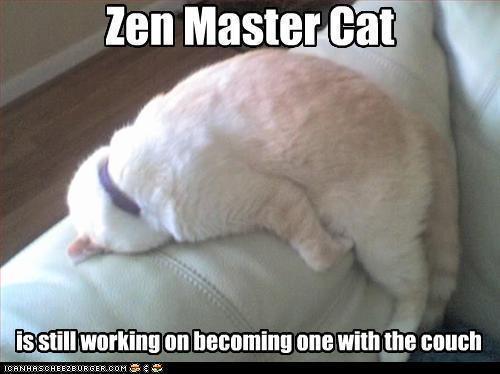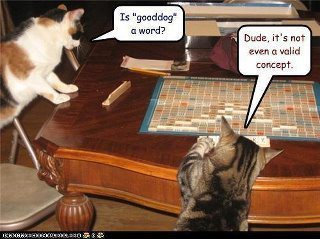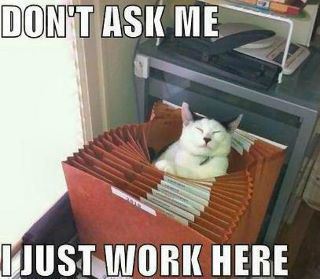Valerie Parv's Blog, page 13
November 12, 2012
Welcome to a writer’s virtual world
Yesterday I had an extraordinary experience. My new romantic suspense novel, Birthright, was published by Corvallis Press and went “live” on Amazon for Kindle with more formats and print to come. Having a new book out isn’t that unusual, but having it published “digital first” is. Even more unusual for me was having a virtual launch on Facebook.
The event took place on my Pacific Island kingdom of Carramer, poolside under a vast atrium. The buffet groaned with tropical goodies and a brand new cocktail, the Carramer Sunrise, was a major hit.
My agent, Linda Tate of The Tate Gallery, helped with the organisation – thanks Linda! Lots of friends stopped in and posted messages. David Tennant – the best ever Doctor Who IMO – did the launch honours and David Barrowman from Torchwood, sang for us. Many celebrities wished the book well.
Award-winning author, Anita Bell, cleverly invited TV’s Dr. House to celebrate my book.
It felt as if we were truly there. Two hours of fun, mayhem, eating, drinking, just like every other great party we’ve all attended. I even got to show off the designer dress I chose for the occasion.
FYI Here’s the recipe for Carramer Sunrise:
5oz champagne, 1/3 oz. Blue Curacao, 1/6oz Grenadine, 1/3oz blueberry liqueur, fresh blueberries.
Pour Curacao, liqueur and Grenadine over blueberries in a tall glass. Add champagne and stir well. Cheers!
Yet why am I surprised if the launch felt real? Isn’t that what writers do all the time? We put words on a page, black and white bird scratchings that readers translate in their minds into worlds often more real than our own. Hogwarts, Starfleet, Narnia, they’re all real places to us. I’ve set 13 books in Carramer, always wanted to explore the indigenous culture which is mystical and beautiful. In Birthright, I got that chance, adding in what Erica Hayes calls “aliens and evil astronauts” to the mix.
Last week scientists speculated that we live in a virtual universe on somebody’s hard drive. Does it matter? The kingdom of Carramer is real to me, and the launch certainly felt real. As Mr. Spock, another undoubtedly “real” alien, said once, “A difference that makes no difference is no difference.” Sheldon Cooper would probably agree, in less comprehensible terms.

David Tennant kindly did the launch honours.
Is there a fictional world that’s more real to you than our own? Love to hear your thoughts.
And enjoy Birthright, too.
Valerie
Birthright, a near-future romantic suspense,
available now on Amazon http://amzn.to/WDRPdW
Website: www.valerieparv.com
Twitter: @valerieparv and Facebook
www.facebook.com/valerieparv
Writing short stories for Living magazine, out now http://www.livingmagazine.com.au/


November 4, 2012
First Monday Mentoring – don’t forget to enjoy writing
It’s the first Monday of the month (or the first Sunday if you’re in the northern hemisphere). You’re invited to ask writing-related questions here for me to answer. Your thoughts and writing experiences may also help others.
Questions posted ahead of time will be answered during Monday November 5.
Sometimes the questions go past Monday into the week, and that’s okay too.
To kick things off, here’s a question I was asked at the RWA conference in August: writers have so much to do with all the blogging, tweeting and other social networking, getting work ready to pitch to editors and agents at conference, designing and promoting your books if you’re indie published (and even if you’re with an established publisher)…it never seems to stop. When do we get to enjoy the writing process itself?
This is a good question, and one we need to address if we’re not to burn out
First, accept that you can’t do everything. If you hate doing live blog tours, don’t commit to days or weeks of them. Can the blog owner send you some questions you can answer in your own time? If you love Twitter and hate Facebook, focus on building your Twitter following. You’ll need a Facebook presence, but you don’t have to be online every minute or even every day. Aim for most days.
Put a value on your time
This was one of the earliest lessons I learned as a freelance writer. Work out roughly what your time is worth per hour, easy enough if you have or had a day job. If you can hire someone to handle your website while you write, that may be a fair trade. Business people don’t think of doing all their own grunt work – why should writers? Farm out gardening, laundry, anything you can afford, freeing up more time to write. This also helps you to see yourself as professional, and less likely to fritter away precious writing time.
Most of all, remember why you want to write
The one thing every publisher, editor and agent asked for at conference was “a good story”. They want to read the adventures, romances and fantasies bubbling away inside you. A perfect lawn won’t make those stories happen. Only you can do that, and it must be important to you or you wouldn’t have chosen to write. Tell the stories only you can write, and let yourself enjoy the experience. As little as an hour a day can make your dreams happen. Everything else other than precious family time can wait or be delegated.
Agree? Have questions or other thoughts? First Monday Mentoring is the place to share what’s on your mind.
Valerie
on Twitter @valerieparv
and Facebook


October 28, 2012
What do you need in order to write?

Use whatever works for you
The author William Faulkner famously said that the tools he needed for his work were paper, tobacco, food and a little whiskey.
Among the authors I know, chocolate would be high on the list. Music, depending on what works for you – it doesn’t for me. I can’t write to music that has or had words. The nearest I can come is the formless “new age” type of music which I find very useful in freeing the muse. Yet just as many writers like to prepare a playlist related to a particular book, assembling the music on an iPod for easy access.
Then there are what I call rituals. These are the steps you find yourself taking automatically, to settle yourself and the muse down to write.
Morning pages
In “The Artist’s Way”, Julia Cameron recommended writing a few pages every morning about anything that comes to your mind, not necessarily to do with the work in progress. These morning pages can be a freeing-up activity if they work for you.
Rituals can be more mundane, such as tidying the desk, lighting scented candles or playing a game, although the latter should be done to a strict timetable or the writing session can fly by without a word being written. Voice of experience? Now why would you think that? Just because I had to banish all forms of Solitaire off my desktop and laptop…
Do you need a particular pen for note-taking, a special colour of scribble pad, or a lucky charm? Make sure you keep them handy.
A sense of place
Sometimes a particular place gets you into the writing mindset. For some it can be the local coffee shop. For J K Rowling, it was a hotel room where she finished the last volume in the Harry Potter series. When I was Established Writer in Residence at the Katharine Susannah Prichard Centre in the Perth hills, I had access to Katharine’s writing studio in the gardens. I even wrote a Tanka (Japanese lyric poem) to mark the experience:
In Katharine’s studio
I search for words.
Pine cones clatter
On to metal roof.
Awakening my muse.
Do you even know what would awaken your muse? The best way to find out is by experimenting. Try writing at different times and in different places. When you discover what works best, keep that time and place sacred and try to write there every day at the same time. Play with scented candles, music, lucky charms, until one or more “click with you, then keep them close by when you’re settling down to write.
Creative writing is not a nine-to-five activity. It’s an art form and requires respect and nurturing. May the muse be with you.
Valerie
friend of the National Year of Reading 2012
Australia Day Ambassador 2013
on Twitter @valerieparv
and Facebook


October 21, 2012
Why creative writing is a never-ending challenge
“For a true writer, each book should be a new beginning where he tries again for something that’s beyond attainment. He should always try for something that he’s never done, or that others have tried and failed then sometimes, with great good luck, he will succeed.”
Ernest Hemingway said this in his Nobel Prize acceptance speech in 1954.
He was right then, he’s still right
Apart from the need to edit “he” into “they” to cover all genders, this is as true now as it was when Hemingway wrote the speech.
The joy of writing is in the challenge of finding out whether you can turn the bright, shiny vision in your head into something of beauty on the page or screen.
Will you succeed? Of course not. Writing is hard work. No matter how well published you are, no matter what prizes you win or how many millions of books you sell, you will never know everything about the craft. That’s what keeps it interesting.
Imagine going fishing and being sure that you would catch dinner every time you threw in a line. Where would be the challenge? Half the pleasure of fishing isn’t catching anything – it’s the joy of sitting by a riverbank, contemplating nature and your thoughts, and not really caring whether you catch something or not. I can’t tell you how often I’ve done that, knowing there was no bait left on my hook, but thinking I had the best excuse in the world to simply be.
These days I don’t fish. After volunteering in a zoo for eleven years, I came to know the fish and couldn’t put them through that. But the comparison holds true. If you bowl, would strikes be as much fun if you could score one every single time? What about cooking? Don’t the occasional failures make your successes all the sweeter?
Try something new
Writing should be an adventure. If you’re not stretching yourself by trying something new with each project, you’re missing one of the joys of the craft. In my book, The Art of Romance Writing, I say we write not because we know we can do it, but to find out IF we can do it. I’m sure that was part of the reason why J K Rowling wrote The Casual Vacancy. It certainly wasn’t for the money, with Harry Potter taking care of that side. So that leaves the challenge, and she admitted as much in an interview on ABC TV with Jennifer Byrne, that writing is something she (JK Rowling) needs to do. As I’ve said here before, writers write.
Experiment. Try a new genre. Write a short story if you usually write books. A book if you usually write short.
Play with the words. They’re not carved in stone. They can be changed. And you know what? If you get a thrill out of crafting your words, there’s a good chance your readers will too.
Happy writing.
Valerie
Friend of the National Year of Reading #NYR2012
on Twitter @valerieparv
and Facebook


September 30, 2012
First Monday Mentoring, making time to write
It’s the first Monday of the month (or the first Sunday if you’re in the northern hemisphere). You’re invited to ask writing-related questions here for me to answer. Lots of talented writers read and comment on this blog and your thoughts and writing experiences may help others.
Questions posted ahead of time will be answered during Monday October 1.
Sometimes the questions go past Monday into the week, and that’s okay too.
To kick things off, here’s a question I get asked a lot – how do you find time to write?
The short answer is, you MAKE time. Nobody has all the time they need to write. If you wait for the perfect moment, you’ll probably never start.
We find time for the things we really want to do. Not what we should do, or dream of doing – but the stuff that burns inside us, keeps us awake at night, and won’t give us any mental peace.
If that’s writing, then you’ll get up an hour earlier, or stay up later, skip a few TV shows, write in your lunch hour…you’ll make the time. You’ll plot in your head while waiting at the bank or post office, and create characters while you’re stuck at red lights.
Do you want to write, or do you simply like the idea of being a writer?
IMO it’s fine to write for your own pleasure, or to share stories with family and friends. Albert Facey wrote his life story for his family. It only came to a publisher’s attention when they took the manuscript to Fremantle Arts Press to be printed and bound. They published the book and it became the Australian classic, A Fortunate Life, later filmed for television.
Few memoirs do as well unless they have strong universal appeal. But writing to give people pleasure, or for the joy of putting words together is a worthwhile end in itself, as is dabbling in painting or throwing pots. It’s only lately that the word “amateur” has become a put-down. It comes from the Greek for a lover of something. An amateur writer writes for love of the craft.
Either way, you’re a writer if you write. And you’ll make the time because you can’t not write. That’s just how it is.
Got a question related to writing? Feel free to ask me here, or make a comment.
Valerie
on Twitter @valerieparv
and Facebook
Now writing short fiction for Living magazine http://www.livingmagazine.com.au


September 2, 2012
First Monday Mentoring, your writing questions answered
It’s spring already, the ideal time to kick start your writing.
It’s the first Monday of the month (or the first Sunday if you’re in the northern hemisphere). You’re invited to post your writing-related questions here for me to answer. Lots of talented writers read and comment on this blog and your thoughts and writing experiences may help others.
Questions posted ahead of time will be answered during Monday Sept 3.
Sometimes the questions go past Monday into the week, and that’s okay too.
To kick things off, here’s a question I was asked at the Romance Writers of Australia national conference on the Gold Coast recently:
How much editing should I do before sending my work to a publisher? Won’t the editor fix any problems?
Once if an editor liked your book, they’d work with you to fix any structural problems. Today, they’re so time poor that the closer to publication-ready your writing, the more likely you are to get accepted.
This means you should address all grammatical, spelling and story logic problems before you submit.
There are 5 ways to improve your self-editing:
1. Study books or take a course in aspects of editing.
2. Hire an editor or service. Check their history and ask writer friends for recommendations.
3. Enter writing contests where editorial feedback is provided, especially from publishers you hope to work with.
4. Join a critique group or find an online critique partner who appreciates your field. Reading and commenting on each other’s work helps you both to make progress.
5. Search online for “freelance editor Australia” or “writing coach Australia”. Many will provide a free sample edit of your writing to ensure they suit your needs.
Other useful tips:
- Study any editorial guidelines posted by the publisher. Be sure to follow them.
-If an editor requests your manuscript at a conference pitch session, send it in a timely manner allowing for a thorough last read before sending it off.
-Don’t gossip or run down editors or publishers in social media. Be professional. Do, however, make the most of their presence to ask questions.
- Avoid posting samples or discussing specific plot ideas online as you may lose control of them.
Is your question related to editing or any other writing issue? Feel free to ask me here, or make a comment.
Valerie
on Twitter @valerieparv
and Facebook
Now writing short fiction for Living magazine http://www.livingmagazine.com.au


August 21, 2012
Make the post-conference buzz work for your writing
The Romance Writers of Australia national conference is over for 2012. All who attended agree it was, like the Olympics, the “best games ever”. That is until Fremantle 2013 comes along and blows our minds. Judging by the trailer screened at this year’s close, exciting times lie ahead.
But what about the year in between?
How will the post-conference buzz benefit your writing?
First, accept that a writers’ conference is not a social event. Sure, we had fun, we met friends, we talked, laughed, ate, drank and loved the party atmosphere. But you don’t go there TO party. You go to learn from the best, meet publishers, editors, agents and expand professional horizons. Apart from the typo in the caption, the LOLcat here has the right idea.
I came home with at least one publisher keen to read a book I haven’t written yet. Two others want to talk to my agent. How about you? If you pitched a book (met an agent or editor to discuss what you want to send them), how soon will that work be on their desk? Marked “requested material” so you bypass the slush pile. One editor says that of ten writers she invites to submit to her, perhaps three follow through.
Make sure you’re one of those three.
Second, apply what you learned. Another statistic says that only one in ten conference attendees ever look at their handout notes again.
Be the one in ten.
As soon as you can, go through the mountain of paper. Put the useful stuff into a folder for quick reference. Type up hand-written notes and add them. Sort business cards. If you want to keep in touch, email within a couple of days about how you enjoyed their workshop/meeting them/your coffee chat and you’d like to be on their mailing list. Be brief, friendly and businesslike. If necessary, remind them of what you discussed. “Thank you for asking to see my paranormal romance about the blue aliens who turn orange after sex. I will send you the requested material by X date.”
Then deliver on your self-imposed deadline.
Keynote speaker, Eloisa James, said that editors and agents are business associates even if they become friends over time. She also said that men don’t talk about being “lucky” to get a job, any more than we’re lucky when a publisher buys our work. They do it for their business, as should we. “Books of the heart” are luxuries, according to Eloisa. We need to write books of the heart for our READERS to fill their keeper shelves and have them talking up our books into best-sellers. Even in the digital age, word-of-mouth is still your best sales tool.
Enjoy your post-conference buzz. I am. Then use it as designed, to progress your writing career. What’s your next move?
Valerie
on Twitter @valerieparv and Facebook
New! Writing fiction for Living magazine www.livingmagazine.com.au


August 14, 2012
Three things writers tell ourselves. Only one is true.
We writers are very good at spinning yarns – that’s why we’re writers. But we are also very good at telling ourselves stories. Lies if you like. The trouble is when we start believing them. Here are three I’ve heard, and told myself, countless times. Can you spot the one truth?
1. I don’t need to write my idea down. I’ll remember it in the morning.
This is a big one, and no, you won’t remember in the morning. All you will remember is that you had a brilliant idea. If you’re lucky, you may remember enough fragments to sort of recapture the idea. But you will always know there was more. If only you’d made the effort to scribble down a few notes, dictated your thoughts into a recording device, or left yourself a voice message as a reminder, you’d be on your way. The moments directly before and after sleep are known to produce brainwaves associated with creativity. Unfortunately, they are also least connected to short-term memory, which is why this problem occurs. Capture the lightning. Make notes. Your brain isn’t hard-wired to remember your brilliant ideas in these brief but fertile moments.
2. I won’t write today. I can catch up tomorrow.
You know this for a lie the moment you read it. We all do. Whether your target daily word count is five hundred words or five thousand (yes, these freaks of nature do exist), you’re wise to try to write them, even if you think they suck pondwater. Kate Grenville told me she has a sign over her desk saying, “It can all be fixed tomorrow.” Another amazing writer, Nora Roberts, said at an Australian writing conference, “You can fix a bad page, you can’t fix a blank page.” Skipping a day because of an emergency is one thing. Skipping because you don’t feel like writing is dangerous. One day can easily become many, until you have to question how much you really want to write.
3. I’ll think of a better ending later
Strangely, this isn’t a lie. Sometimes the only way to solve a writing challenge is to write your way through it. When writing my screenplay recently, I knew what I wanted to have happen at the climactic scene. What I didn’t know was how the scene would go. I wrote a treatment (synopsis) for the producer and told him that the scene would change. When I got there, it took me several long nights of brainstorming on paper to resolve the problem. What if? Why would she…? Could she do that? What if he…? until I had the breakthrough I needed. The result was a nifty twist I couldn’t have foreseen at the start, because I hadn’t lived in my characters’ world for long enough.
“If you build it, they will come” is often true of writing. Capture your ideas. Commit to showing up most days and meeting your chosen word count. Your reward will be a world that comes to life for you and your readers.
Valerie
on Twitter @valerieparv and Facebook
now writing for Living Magazine http://www.livingmagazine.com.au


August 5, 2012
First Monday Mentoring August, are we writing too much?
The first Monday of each month is when you can ask your writing-related questions and I’ll do my best to answer. Questions can be posted ahead of time and I’ll answer during Monday August 6. I monitor the blog and post answers throughout the day. Sometimes discussions go past Monday into the week, and that’s OK too.
First I’d like to ASK a question – are we writing too much?
With all the blogs, interviews, articles and courses about writing out there, plus the vast number of “indie” published books for sale, there has never been more choice of writing or information about the craft.
Some information is amazing. You can access practically every editor and agent in the business. You can ask questions, make comments, take part in discussions. You can also chat with your favourite authors, review books and read reviews by others. So how do you sort out what’s useful?
Here are my three tips:
1. Look at who’s giving the advice.
Are they published? In what markets? Are their books successful? If the answers are mostly yes, you know they speak from experience. You don’t have to agree with everything, but it’s worth your time to consider.
2. Is the advice written on tablets of stone?
If it is, approach with caution. The best teachers of writing recommend using what you find useful and leaving the rest. I’m wary
of anyone who suggests there’s only one way to write. There are as many ways as their are writers.
3. Is the information current?
In a landscape where changes are occurring daily, you need to know the advice you’re relying on is up to date.. Even better if it’s forward looking and willing to explore where we might go from here.
What do you look for in workshops, how-to books and writing advice? What are you not getting but would like to?
Let First Monday Mentoring begin. Feel free to post about these or any other aspects of writing, I’ll do my best to answer.
Valerie
Friend of the National Year of Reading 2012
on Twitter @valerieparv
and Facebook
Valerie’s Coffee Break Reads now in Living magazine www.livingmagazine.com.au


July 18, 2012
You’re a writer, you can dash something off
During the last month while I’ve been Established Writer-in-Residence at Katharine Susannah Prichard Writers’ Centre in Perth, I’ve discussed craft and lifestyle issues with writers working in many different fields. One experience we all have trouble with is when non writers assume that because your job is to put words together, you can do it at the drop of a hat.
Birthday cards and get-well cards are the most trying
We might not even know the person the card is intended for. Yet we’re still expected to come up with something witty to make the card sparkle.
Roses are red, violets are blue,
Get well or not, it’s all up to you.
Um…no. “Just dash something off.”
Susan O’Brien, a delightful and talented poet I met at Poets@KSP, said she was also told, “It doesn’t matter if the poem doesn’t rhyme.” The person asking had no idea what kind of poetry Susan writes. Didn’t matter. Just dash something off. It’s not that we don’t want to help, but it’s as difficult as anyone else would have demonstrating their trade on a whim.
Would you approach a doctor at a social gathering
and request a note for your employer?
It doesn’t matter if I’m sick or not, just dash something off. Sounds silly, doesn’t it? Yet writers are constantly asked to supply original words to suit any occasion. “Don’t spend any time on it, whatever you do will be fine.” Would that our editors were equally agreeable.
Just call me Hallmark
More often than not, I agonise over words, reaching for exactly the right phrases to capture a thought or feeling. Or strive to describe a character’s situation so vividly that a reader lives it, rather than reading about it. It’s not unusual for writers to read over the previous day’s work, delete the lot of it and start again.
When I wrote my first novels, I was still a freelance writer of non fiction books and articles. Yet I managed to write five books over two years. When I decided to write novels exclusively, I looked forward to seeing my output soar. Guess what? I still wrote two to three novels a year. By then I’d used up all the plots I’d carried around in my head, and much of my own experiences. And my expectations for myself had risen.
The writing gets harder, not easier as you demand more of yourself
The act of putting the words together was less scary because I knew I could do it. But what was I to write about? The terror of the blank screen or page haunts every writer I know. I believe we write to see IF we can do it. Every book is a first book. New challenges, new pitfalls.
Roses are red, violets are…azure, beryl, cerulean, cobalt, indigo, navy, royal, sapphire, teal, turquoise, ultramarine
Nope, no dashing off happening here. What about you?
Valerie
Established Writer in Residence, Katharine Susannah Prichard Writers’ Perth
And dashing posts off on Twitter @valerieparv
and Facebook


Valerie Parv's Blog
- Valerie Parv's profile
- 30 followers


